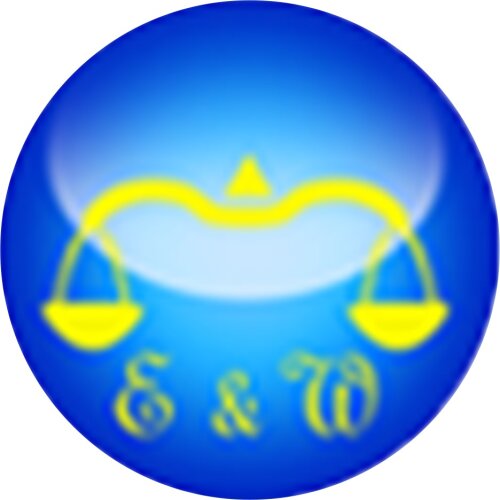Best Debt & Collection Lawyers in Jamaica
Share your needs with us, get contacted by law firms.
Free. Takes 2 min.
Or refine your search by selecting a city:
List of the best lawyers in Jamaica
About Debt & Collection Law in Jamaica
Debt & Collection law in Jamaica is primarily concerned with the legal processes available for creditors to recover debts owed to them by individuals or businesses. The landscape of debt recovery involves both formal and informal methods, with legal frameworks in place to protect the rights of both debtors and creditors. The system is designed to ensure that debt recovery is fair and does not exploit either party, while also providing mechanisms for dispute resolution and negotiation.
Why You May Need a Lawyer
There are several situations where individuals or businesses in Jamaica may need the assistance of a lawyer concerning debt and collections:
- Debt Disputes: If you believe a debt is incorrect or have disputes over the amount owed, legal advice can help resolve the issue.
- Debt Recovery: Creditors seeking to collect unpaid debts may need legal representation to navigate the court system effectively.
- Bankruptcy Proceedings: If you're considering declaring bankruptcy, a lawyer can provide guidance on the process and implications.
- Negotiating Settlements: Professional legal assistance can help negotiate repayment plans or settlements with creditors.
- Dealing with Harassment: If you're experiencing harassment from debt collection agencies, a lawyer can advise you on your rights and remedies.
Local Laws Overview
The debt and collection landscape in Jamaica is governed by several key laws and regulations:
- Judicature (Civil Procedure Code) Act: This act provides the framework for civil proceedings in court, outlining procedures for debt recovery.
- Insolvency Act: For individuals and businesses unable to meet their debt obligations, this act provides guidance on declaring bankruptcy and the distribution of assets.
- Fair Debt Collection Practices: While not a specific act, various consumer protection guidelines regulate how debt collectors must operate, ensuring fairness and legal compliance.
- Enforcement of Judgments: Methods for enforcing judgments against debtors, such as garnishments and property liens, are delineated in various regulations.
Frequently Asked Questions
What are my rights if I'm being harassed by a debt collector in Jamaica?
You have the right to be treated fairly and not be subjected to harassment. If a debt collector is using abusive practices, you can report them to the Consumer Affairs Commission or seek legal advice.
Can a creditor sue me if I fail to repay a debt?
Yes, creditors can file a lawsuit against you in civil court to recover the debt. It's important to respond to legal proceedings promptly to avoid default judgments.
What is the statute of limitations for debt collection in Jamaica?
The statute of limitations for most debts is typically six years from the date the debt became due. After this period, the debt is considered "time-barred" and generally unenforceable through the courts.
Can I negotiate a debt settlement on my own?
Yes, you can negotiate directly with creditors. However, legal representation might help achieve more favorable terms and ensure that all agreements are legally binding.
What is the process for declaring bankruptcy in Jamaica?
The process involves filing a bankruptcy petition with the court, during which your assets may be liquidated to pay off creditors. It's advisable to consult with a lawyer to understand the implications fully.
Can wages be garnished for unpaid debts?
Yes, if a court judgment is obtained, creditors can request an order to garnish wages to satisfy unpaid debts.
How does a judgment affect my credit report?
A judgment against you can negatively impact your credit report, making it more difficult to secure loans or credit in the future.
What happens if I ignore a debt collection lawsuit?
Ignoring a lawsuit can result in a default judgment, where the court may grant the creditor's claim without your participation, potentially leading to wage garnishment or asset seizure.
Are student loans subject to the same debt collection laws?
Student loans are generally subject to similar collection practices, though they may fall under specific government programs that have additional rules.
Can I appeal a court judgment related to a debt?
Yes, you can appeal a judgment, but it's essential to act quickly as there are strict deadlines for filing an appeal. Professional legal advice is recommended.
Additional Resources
For further assistance or information concerning debt and collection, consider reaching out to the following resources:
- Consumer Affairs Commission: Provides advice and mediatory services for consumers facing issues with debt collection.
- Bank of Jamaica: Offers guidelines and regulations regarding lending and credit practices.
- Jamaica Bar Association: Can connect you with legal professionals specializing in debt and collection law.
- Insolvency and Credit Administration: For individuals considering bankruptcy, this government department can provide necessary guidance.
Next Steps
If you require legal assistance in debt and collection, here are the steps you can take:
- Consult a Lawyer: Reach out to an attorney specializing in debt and collection to discuss your case and receive tailored advice.
- Document Everything: Keep records of all communications with creditors and any relevant financial documents to support your case.
- Explore Mediation: Consider alternative dispute resolution methods like mediation, which can often result in quicker and less adversarial resolutions.
- Act Promptly: Debt issues can escalate quickly, so it's vital to take legal action or respond to legal notices promptly.
Seeking professional legal advice can provide clarity and direction, ensuring that you handle your debt-related issues according to the best legal practices in Jamaica.
Lawzana helps you find the best lawyers and law firms in Jamaica through a curated and pre-screened list of qualified legal professionals. Our platform offers rankings and detailed profiles of attorneys and law firms, allowing you to compare based on practice areas, including Debt & Collection, experience, and client feedback.
Each profile includes a description of the firm's areas of practice, client reviews, team members and partners, year of establishment, spoken languages, office locations, contact information, social media presence, and any published articles or resources. Most firms on our platform speak English and are experienced in both local and international legal matters.
Get a quote from top-rated law firms in Jamaica — quickly, securely, and without unnecessary hassle.
Disclaimer:
The information provided on this page is for general informational purposes only and does not constitute legal advice. While we strive to ensure the accuracy and relevance of the content, legal information may change over time, and interpretations of the law can vary. You should always consult with a qualified legal professional for advice specific to your situation.
We disclaim all liability for actions taken or not taken based on the content of this page. If you believe any information is incorrect or outdated, please contact us, and we will review and update it where appropriate.
Browse debt & collection law firms by city in Jamaica
Refine your search by selecting a city.











